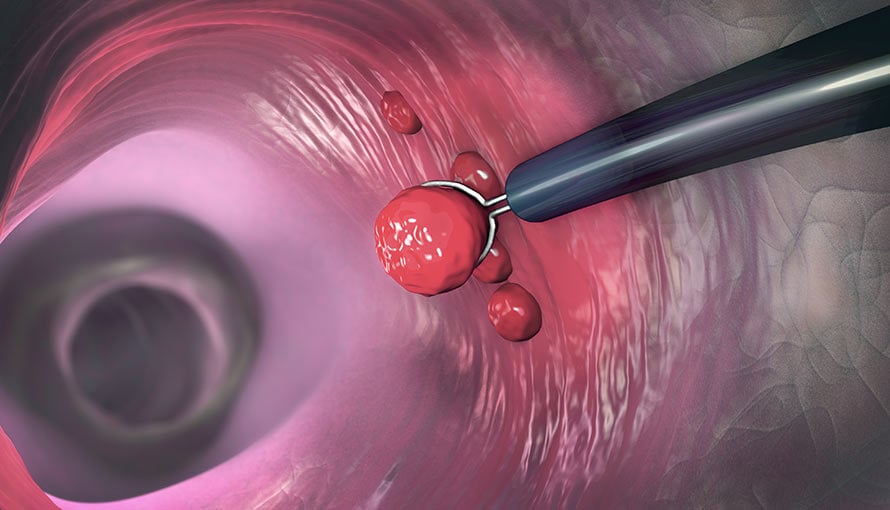Do Colon Polyps Mean I Have Colon Cancer?

If you are confused about the difference between colon polyps and colon cancer, you aren’t alone. The most important thing you should know is that having colon polyps does not mean you have colon cancer. In fact, most colon polyps don’t progress to become cancerous. However, because nearly all colon cancers start as polyps, it is important to understand what they are and what should be done in the event they are found.
What are colon polyps?
Colon polyps are growths on the colon’s inner surface caused by changes in the colon’s lining. Colon polyps are very common and are not a cause for concern in and of themselves. There are several kinds of colon polyps, the most common of which are:
- Hyperplastic and inflammatory polyps – These generally do not carry a risk of turning into cancer.
- Adenomas or adenomatous polyps – These are considered precancerous, as they may turn into colon cancer if left untreated.
Most colon polyps do not cause any symptoms, but when they do, symptoms tend to be limited to black or bloody stools. Since most colon polyps don’t cause symptoms, it usually takes a colonoscopy to detect them.
What happens when colon polyps are found?
In the event that colon polyps are found, they will be removed either endoscopically or surgically and then sent to a lab to be analyzed. The results of the analysis will show if the polyps are cancerous and will determine the kind of follow-up care that is necessary.
If a patient’s colon polyps turn out to be cancer, they can turn to Moffitt Cancer Center for an individualized treatment plan developed by a multispecialty team that specializes in treating colon cancer. Our patients also have access to counselors, social workers, dietitians and other helpful supportive care specialists who will help to ensure their needs are being met as they undergo treatment.
If you would like to schedule a consultation at Moffitt, call 1-888-663-3488 or fill out a new patient registration form online. Referrals are not required.
